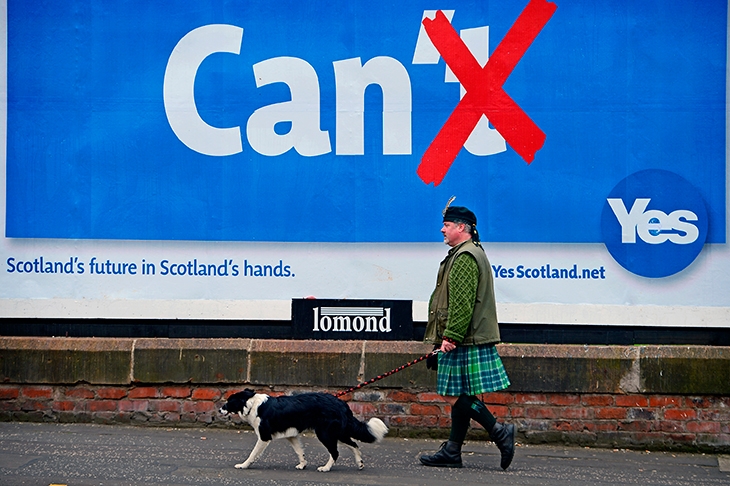SNP sophistry
Sir: Andrew Wilson (‘Scot free’, 21 November) poses the question: ‘What if the case for independence was a highly sophisticated position?’ If only. For the SNP position is one of sophistry rather than sophistication. Wilson states that Scottish voters want Scotland to return to Europe. He also states that an independent Scotland would retain sterling, but does not mention the two policies are incompatible.
Already a subscriber? Log in
Subscribe for just $2 a week
Try a month of The Spectator Australia absolutely free and without commitment. Not only that but – if you choose to continue – you’ll pay just $2 a week for your first year.
- Unlimited access to spectator.com.au and app
- The weekly edition on the Spectator Australia app
- Spectator podcasts and newsletters
- Full access to spectator.co.uk
Or
Unlock this article
You might disagree with half of it, but you’ll enjoy reading all of it. Try your first month for free, then just $2 a week for the remainder of your first year.














Comments
Don't miss out
Join the conversation with other Spectator Australia readers. Subscribe to leave a comment.
SUBSCRIBEAlready a subscriber? Log in